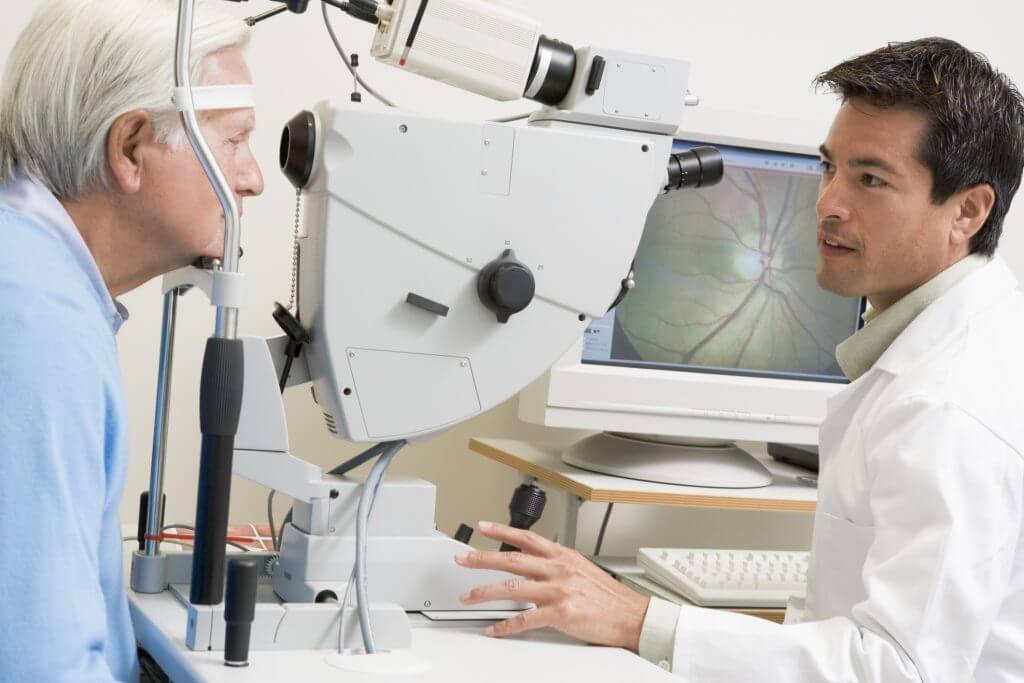Home » Blog » Diabetes and the Eye: Thoughts for Diabetes Awareness Month
Diabetes and the Eye: Thoughts for Diabetes Awareness Month
Posted by: Georgia Eye Partners in Education, Patient Education
Diabetes and the Eye: Thoughts for Diabetes Awareness Month
Diabetes is the is the most frequent cause of new cases of blindness among adults aged 20–74 years in developed countries. Nearly 1 in 10 Americans — 30.3 million — have diabetes, and around 1 in 3 have pre-diabetes. November is Diabetes Awareness Month, a timely opportunity to consider the impact of diabetes on the eye. Diabetic retinopathy is the most dangerous effect diabetes can have on the eye, though diabetes can also cause other problems such as cataracts.
“Ideally, diabetic retinopathy would be caught before, not after, it has major visual symptoms,” said Georgia Eye Partners ophthalmologist Evan D. Schoenberg, M.D. He explained that elevated levels of glucose, or sugar, lead to damage to the microscopy blood vessels within the retina, which in turn trigger bleeding and swelling. “The same changes which happen to the eye are happening to other parts of the body, too, like the kidneys. Examining a kidney’s blood vessels is very invasive, but as part of the routine eye exam we can view the retina with just a light source and a powerful lens… and that means we can know whether and how much damage is occurring. There are often no visual symptoms in the early stage of the disease.”
Treatments for diabetic retinopathy include laser and medicine injections, though in some cases better control of sugar levels is sufficient. Symptoms include blurred vision, dark or ‘missing’ spots in your vision (particularly in the center of your vision), and trouble seeing well at night. Other effects of diabetes include temporarily blurred vision when sugar levels are high, because the sugar causes swelling in the eye’s natural lens which in turn changes its focusing ability, as well as faster cataract development.
Over half of newly diagnosed diabetes cases are in adults 45-64 years old. The American Academy of Ophthalmology recommends that people with diabetes undergo a yearly eye exam, regardless of age and symptoms, in addition to maintaining good sugar levels, avoiding cigarette smoking, and have a good diet and exercise regimen. For people without diabetes and at low risk for other eye problems, a bi-annual eye exam is sufficient for adults up to 64 years old; after that, everyone should have an annual exam.
Georgia Eye Partners is a group practice of ophthalmologists and optometrists dedicated to providing our patients in Metro Atlanta and North Georgia with the highest quality medical and surgical specialty eye care. Learn more about our practice locations and book appointments online here.
